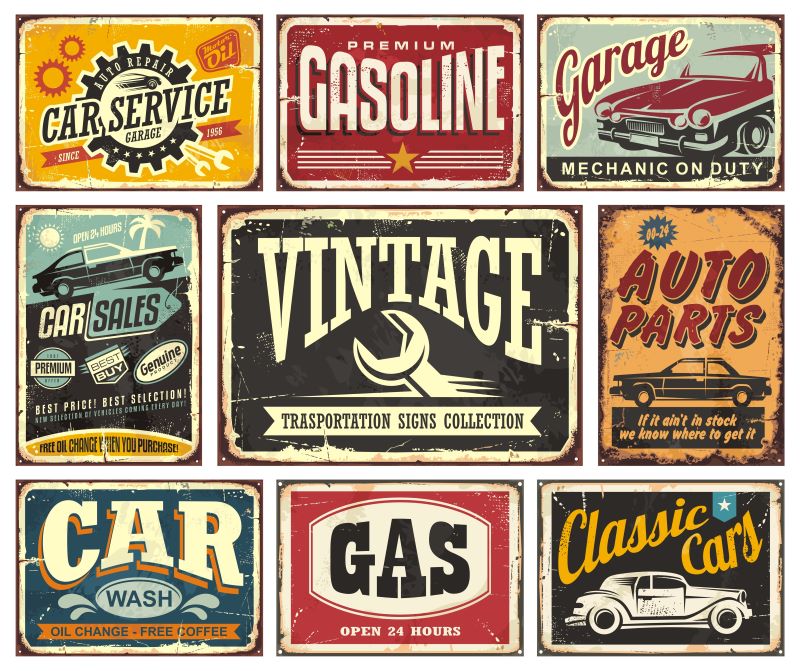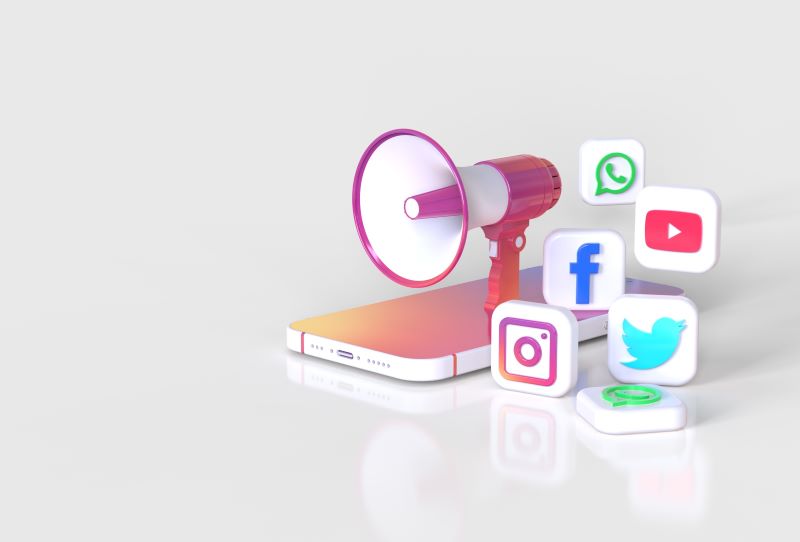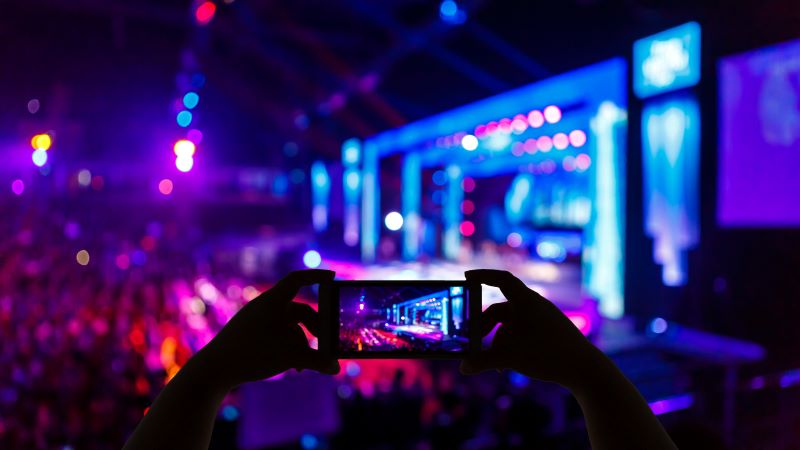
So, how do you avoid ending up like Marvel? While the right balance is difficult to strike, doing so is hugely rewarding. In this article, we will look to define the marketing agency space, the challenges it faces, and what you can do to overcome them. We hope our advice will help you figure out a (new) collaboration plan that works best for you.
What Are Marketing Agencies?
Marketing agencies are small businesses that act like business partners to larger organizations. They assist their clients in all marketing-related activities and collateral. You can have an agency carry out all marketing operations exclusively or with your organization’s internal marketing and creative teams.
What Is the Difference Between Agencies in the Marketing Field?
Agencies in the marketing field are highly specialized and they come with their own offering, depending on the type of agency they advertise themselves to be. To the untrained individual, all agency names sound the same. Well, while their services do converge, a huge part of their offering is unique to their area of specialization within the marketing industry. Let us explore the different types of agencies and what they each offer below.
8 Types of Marketing Agencies
1. Advertising Agency
This is the original type of agency that predates the internet and social media. You know, when people used to call each other on the phone and had no option but to make small talk at the dinner table. Advertising agencies used to be active on TV, print, and radio. They used to offer a full suite of services across all advertising channels – making them the go-to business partner for many organizations. Nowadays, they have amended their offering to match the digital age and space that marketing occupies.

2. Account-Based Marketing (ABM) Agency
Most beneficial to companies in the business-to-business (B2B) market, ABM agencies are most helpful for your organization’s sales department. In partnering with such an agency, you ensure that marketing and sales target their efforts to entice the accounts of your choice. Like a dream come true, right? Use such an agency especially when your goal is to hyper-target certain organizations in niche markets.

3. Branding Agency
This is the agency you contact when you wish to expand your reach. The branding agency offering goes beyond promoting your products and services. It concerns your current image and what image you wish to project to the rest of the world. The branding agency will help you build your desired image and craft the right messaging to go with it. How do you want the world to perceive you? Let them guide you through it all.

4. Digital Marketing Agency
DMAs cater to the different types of digital media across the internet. Name a type of online campaign and they do it. Another part of their offering is deploying different tactics like email marketing, viral marketing, and banner advertising. Nothing is off limits – not even emojis. DMAs work in video, mobile, and other types of formats. If you are looking to establish your digital presence, this type of agency is what you need!

5. Direct Marketing Agency
In the direct marketing field, an agency can assist by reaching out to prospects using clever means that illicit a response from the receiver. This is fancy talk for tricking people into action. They accomplish this through a mix of digital and physical marketing. Their tactics include flooding your letterbox, staying atop your inbox, or directing you to someone’s website. The bread and butter of direct marketing agencies is to create a sense of urgency.

6. Public Relations Agency
“Image is everything” or so the Andre Agassi ad goes. Think of using a PR agency as the natural next step after collaborating with a Branding agency. Now that you have crafted your messaging and you have built your brand, it is time to promote it to the rest of the world. And that is where PR agencies come in. They will help acquaint the public with your brand by featuring you in events, TV shows, and movies. Their goal is to create positive associations with your brand, in the same way that the Coca-Cola Company has transcended marketing and invented Christmas as we know it.

7. Social Media Agency
If you have an internet connection, chances are you use at least one social media platform to an extent. That is unless you are part of the blissful minority that basks in the light of their social-media-free existence. Everyone can be on social media and promote a product, a service or themselves – but not everyone can do it well. Agencies in this field ensure your online communication is timely and that it targets the right audience.

8. Special Events Agency
Think of big traditional events like marketing conferences such as CEX and MarTech, or virtual special events like the Fortnite Soundwave concert series, featuring performances from acts such as J Balvin, Ariana Grande, and Travis Scott. No matter the platform they are on, events are a logistical nightmare to organize. They are time-consuming and time sensitive, and the dozens of moving pieces that come together to form the event make for a breeding ground for errors, cancellations, delays… you get it. Hiring an agency is worth the money.

Which Are the Benefits of Using a Marketing Agency?
1. More Experts Join Hands
Your team fuels your organization’s creative output and imbues it with ideas and communication that are on brand. Now, imagine if you took that creative pool of individuals and doubled it in size. The possibilities and dynamics of the new hybrid team would expand significantly! It is, perhaps, the most rewarding aspect of working with a marketing agency. The new additions to the think tank can bring new and fresh ideas and provide you with a different spin to already-existing ones.
When a marketing agency does its job right, they offer impartial and unbiased feedback on all pre-existing and future ideas and collateral. Having the way you approach your work and organization challenged by outsiders can rub people the wrong way. And yet, it is by going through this rough process together with your marketing agency that you get the most out of your collaboration with them.
2. Access to More Tools and Services
Great marketing agencies have a complete arsenal of tools and services in the field they specialize to meet their customers’ requirements, requests, and demands. And they most certainly have access to a much wider range of tools and services than your organization does. This fact really helps make a difference in the quality and quantity of output that agencies can produce when compared to internal teams with a more traditional set of tools.
So, when the two sides work together, the results are faster, better, and stronger. Think of using an agency to turbocharge your operations. A promising idea may be to take note of the tools and services an agency uses most and explore the software options for your own team in the future. After all, what use is there in working with the best if you cannot learn a thing or two from them?
3. Save on Time and Money
Time is money – at least that is what Benjamin Franklin claimed. By that aphorism, a successful collaboration with a marketing agency will benefit you in two major ways, one short term, one long term. The short-term benefit is the acceleration of your operations. You have more people working on projects than ever before, and the new kids on the block have brought some nifty equipment.
And the new team members keep learning from each other, advancing their knowledge and expanding their creative potential. They influence and challenge each other. Together, they bring their ever-evolving ideas to life. If you stick with a decent marketing agency for the long haul, you will find that the money you save with their help is much more than what you spend on them.
And now, it is time to play devil’s advocate…
Which Are the Drawbacks of Using a Marketing Agency?
1. Unfamiliarity with Industry and Competition
Marketing agencies are comprised of subject matter experts that work with organizations to help them achieve their goals and bring their vision to life. And not all marketing agencies are built the same. A difference we like to draw often is that of someone having the abilities and skill set required to be an expert, and that of someone who is an expert in the things you want them to be.
The struggle that many organizations working with external agencies often face is that of poor understanding on the agency’s side. And the lack of understanding is twofold – on an industry-wide level, and on that of your and your competition’s level. When an agency is newly established, they are prone to newcomer mistakes. Even if they are comprised of industry experts, a newly formed team needs time to learn how to work together.
And even if they have gotten past that stage, they still need time to understand you and your competitors well.
2. Unfamiliarity with Branding and Messaging
Even when your collaborators know the industry well, they still must make considerable effort to attune themselves to your branding and messaging. The last thing you want is for your communication to feel disjointed. The two teams should be fully aligned on branding and messaging before they begin to collaborate. And yet, this crucial step is often skipped. The result? Your communication is either diluted or confusing – and consumers do not respond well to ambiguity.
As if all of this was not enough, you may also have internal push-back to deal with. Remember that hiring a marketing agency may not be viewed in a positive light by some creative team members. Creative people and marketers share a high degree of ownership over their work. Adding another cook to the kitchen may, then, present a new set of people-centered challenges to deal with.
3. Less Creative and Process Control
Letting an agency help you with your marketing efforts requires that you relinquish control. Not completely, but in a few key areas it does. This can be quite tricky, especially when your internal team is comprised of passionate individuals who feel a high degree of ownership over their work. A degree of control is necessary so that what you produce is on brand. And it is tough to pass the torch to another, even if doing so favors the business.
Once you get a marketing agency involved, what processes are followed to achieve the outcomes you have requested are most likely gonna be communicated to you in advance, but you will not have much of a say in them. And then there’s the mater of deadlines. The agency will have to manage itself entirely to provide you with a timely outcome delivery, but progress may happen at a different pace than you’re used to.
How Can You Collaborate with Marketing Agencies Best?
1. Creation Management:
Focusing on collaboration from the very beginning by capturing great content ideas in the form of creative briefs. During the creation management pillar is when project resources are established, assigned, and tasks and time is managed.
2. Universal Approval:
Spanning throughout the entire Creative Lifecycle, feedback and approvals are critical at major project milestones such as asset reviews, creating an audit trail for feedback, and ensuring templating consistency. During the universal approval pillar is when the focus is really on the stakeholder involvement and feedback.
3. Creation Automation:
As the demand for creative assets increases, it is becoming increasingly more important to automate as much of the creative process as possible. A core focus of the creative automation pillar is templating – across all modules.
4. Asset Management:
Guiding stakeholders when needed is a key component for asset distribution. Asset management focuses on ensuring the right assets are easily tagged, found, and used. A core focus of the asset management pillar is to streamline asset sharing across departments, locations, and stakeholders.
How Do I Find Marketing Agencies in My Area?
If you live in the Netherlands, you can find the best digital marketing agencies on this website. If you are in the United States, then visit this page instead. And, no matter where you live in, you can always simply visit a search engine like Google or Bing and type ‘marketing agencies near me’.
While there are countless marketing agencies to support you in your efforts, success starts from having the right tools to manage your creative operations. Lytho helps you streamline your entire workflow and harmonize all brand collateral under a single, uniform platform. Feel free to reach out to us by scheduling a demo and learning how our creative solutions can boost the effectiveness of your creative projects. We look forward to speaking with you!
Do you want to give yourself and your creative team more room for creative stimulation by automating the boring stuff? Lytho helps you streamline your entire workflow and harmonize all brand collateral under a single, uniform platform. Feel free to reach out to us by scheduling a demo and learning how our creative solutions can boost the effectiveness of your creative projects. We look forward to speaking with you!

Ready to simplify your creative operations and start having a little fun at work again? Schedule time to talk with us.
Let us show you how Lytho’s Creative Operations Platform helps in-house creative and marketing teams do better work, ease the stakeholder experience, and stay on brand.
Schedule a Demo